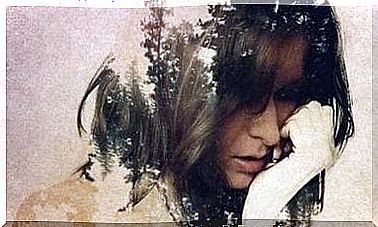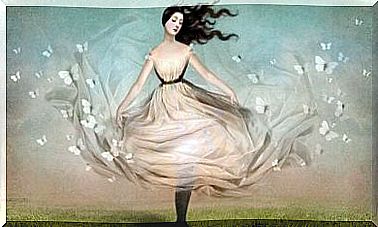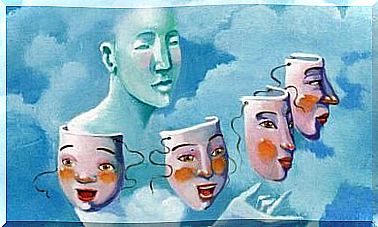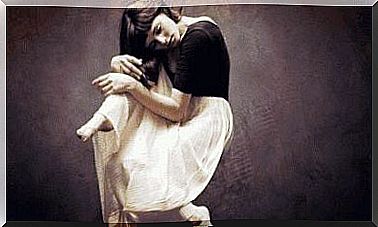“When I Started To Love Myself “: A Wonderful Poem By Charlie Chaplin
One of the most famous poems by Charlie Chaplin, one that gives a wonderful lesson on personal growth, begins as follows:
In history, there was a time when in the world of art, science and culture, only two names stood out. They were Charlie Chaplin and Sigmund Freud.
If Chaplin had a famous and admired face, Freud apparently had the most brilliant mind.
Both of these people were so famous that for many years Hollywood tried to get the father of psychoanalysis involved in a major production.
It was in 1925 when the head of the MGM (Metro-Goldwyn-Mayer), Samuel Goldwyn, called Freud to praise his work and publications. He called him “the world’s greatest specialist in love.”
He then asked Freud to collaborate on a new project by helping with an evaluation: ” Antony and Cleopatra”.
Goldwyn offered him over $100,000, but Freud said “no”. The psychoanalyst was so upset by the type of art that he began to think that he hated movies and the entire film industry.
But in 1931 , Sigmund Freud wrote a letter to a friend revealing his deep admiration for someone he called a “genius.” Someone who seemed to show the world’s most admirable and inspiring openness. It was Charlie Chaplin.
In the letter, Freud superficially analyzed what Chaplin projected about himself in his films. One from a humble background, who had a hard childhood, and yet enters maturity with highly defined values.
So no matter what kind of hardships he went through every day, Chaplin would always maintain his humble heart.
That is why, despite setbacks and complex different societies, he always ended up solving his problems through love.
We do not know whether Freud was right or not in his analysis. But this is at least what Chaplin seemed to show in his films and especially his poems. True lessons about wisdom and personal growth.
Charlie Chaplin, the man behind the poem
They say that Charlie Chaplin wrote this poem, “When I Began to Love Myself,” when he was seventy years old.
But, according to other people, it could not have been written by him, and is in fact a somewhat free adaptation of a passage in the book “When I Loved Myself Enough” by Kim and Allison McMillen.
In any case, it is worth saying that it is not the only text by Chaplin in which he creates such a beautiful and delicate text about the power and value of our thoughts.
In fact, here we have also composed the poem “Live!” It reminds us, among other things, that the world belongs to those who dare to take it. That to live is not just to go through life, but to fight, feel, experience and love intensely.
So it does not matter if the poem is an adaptation of another, or if it comes from the brain to the iconic genius that captures us with its movements, its mustache and its cane.
The charlatan, the depressed character, the lonely wanderer, the poet and the dreamer who is always looking for romance or adventure, had an extremely clear mind behind him.
The mind of a man with very clear ideas about the message he wanted to send. And what he gave us with his productions fits perfectly with every word in this poem.
In fact, in his memoirs he has talked about how every aspect of his characters’ costumes had a meaning:
- His pants were a challenge to beliefs.
- His hat and cane were an attempt to appear worthy.
- The little mustache, a touch of vanity.
- His shoes, the setbacks that come in people’s roads all the time.
Charlie Chaplin woke us up
Something Charlie Chaplin also always tried to do through the innocence of his character was to raise our awareness.
To awaken us to the complex paradoxes of our world. A place where only human, psychic forces can confront meaninglessness, inequality or evil.
We see something like that in “The Dictator”. This is where he invites us to connect with ourselves and all other people. To not only defend our rights, but the rights of our planet.
Even today, Chaplin’s legacy is very much present. In fact, it will always be necessary and indispensable.
Because the lessons given in the tragicomedy are the ones that make us think the most. And poems like “When I Began to Love Myself” are gifts to our hearts, direct invitations to improve ourselves.
When I started loving myself, Charlie Chaplin
When I began to love myself, I realized that in any case, I am in the right place at the right time, and everything is happening at just the right time. So I could be calm. Today I call it “SECURITY”.
As I began to love myself, I found that anxiety and emotional distress were just danger signs that I was living against my own truth. Today I know that this is “AUTHENTICITY”.
As I began to love myself, I stopped wishing for another life, and I could see that everything around me invited me to grow. Today I call it “MATURITY”.
When I started to love myself, I realized how much it can offend someone if I try to force my desires on this person, even though I knew the time was not right and the person was not ready for it, and even if this person was me. Today I call it “RESPECT”.
When I began to love myself, I freed myself from everything that was not good for my health – food, people, things, situations and everything that pulled me down and away from myself. At first I called this attitude healthy selfishness. Today I know that it is “SELFISH”.
When I started loving myself, I stopped stealing my own time, and I stopped creating big projects for the future. Today I do only what brings me joy and happiness, things I love to do and that make my heart rejoice, and I do them in my own way and in my own rhythm. Today I call it “SIMPLICITY”.
When I began to love myself, I stopped trying to always be right, and since then I have made fewer mistakes. Today I discovered that it is “HUMILITY.”
When I began to love myself, I refused to continue living in the past and worrying about the future. Now I live only in the moment, where everything happens. Today I live every day, day after day, and I call it “FULFILLMENT.”
As I began to love myself, I realized that my thoughts could disturb me and make me sick. But as I connected them to my heart, my thoughts became valuable allies. Today I call this connection “THE WISDOM OF THE HEART”.









